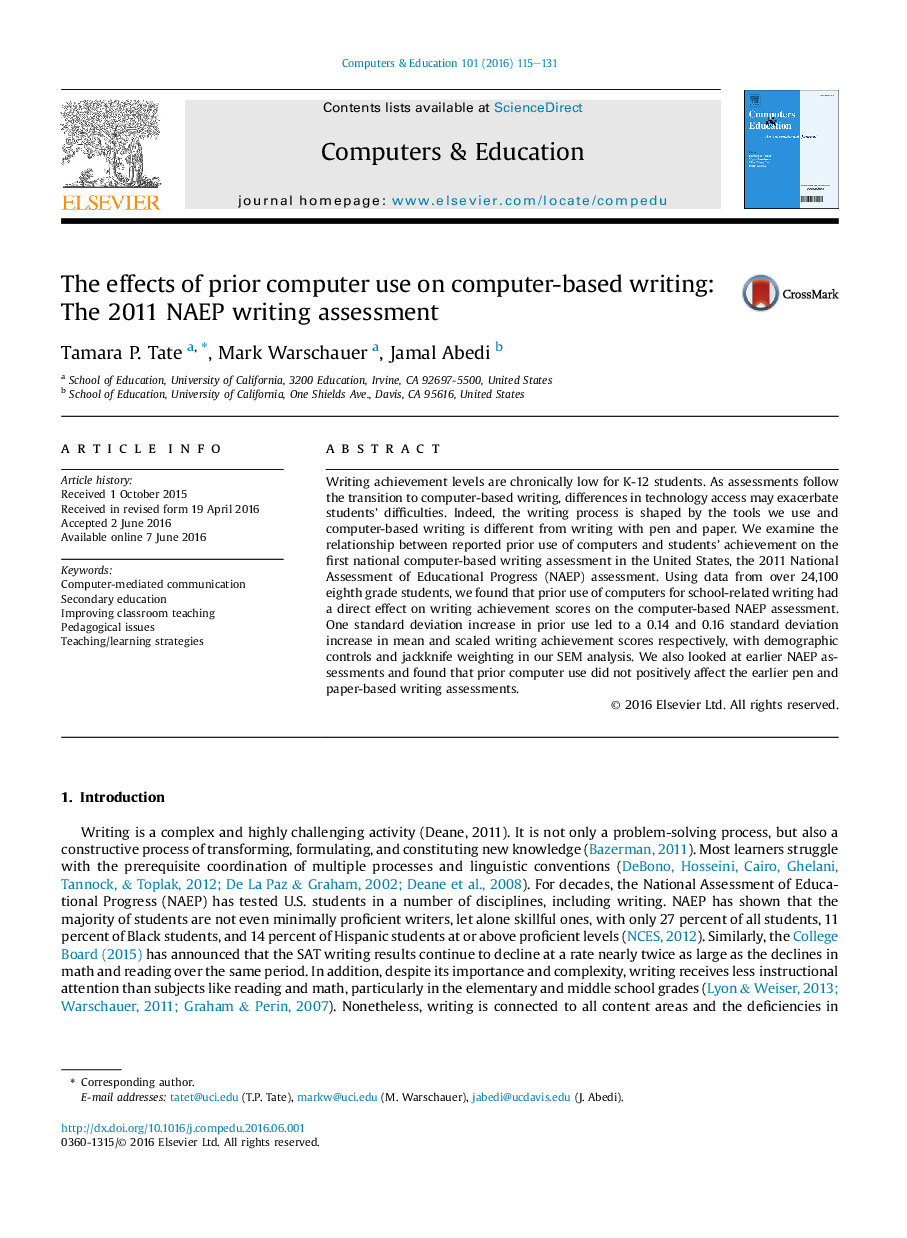| Article ID | Journal | Published Year | Pages | File Type |
|---|---|---|---|---|
| 348167 | Computers & Education | 2016 | 17 Pages |
•Prior use of computers for writing predicted achievement on the 2011 NAEP writing assessment.•Prior use led to between 0.14 and 0.16 standard deviation increase in writing achievement scores.•Student and teacher reported use of computers for school writing were predictive of writing scores.•Personal use of computers was not correlated with improved NAEP scores.•Professional development and use of technology for instruction did not predict achievement.
Writing achievement levels are chronically low for K-12 students. As assessments follow the transition to computer-based writing, differences in technology access may exacerbate students’ difficulties. Indeed, the writing process is shaped by the tools we use and computer-based writing is different from writing with pen and paper. We examine the relationship between reported prior use of computers and students’ achievement on the first national computer-based writing assessment in the United States, the 2011 National Assessment of Educational Progress (NAEP) assessment. Using data from over 24,100 eighth grade students, we found that prior use of computers for school-related writing had a direct effect on writing achievement scores on the computer-based NAEP assessment. One standard deviation increase in prior use led to a 0.14 and 0.16 standard deviation increase in mean and scaled writing achievement scores respectively, with demographic controls and jackknife weighting in our SEM analysis. We also looked at earlier NAEP assessments and found that prior computer use did not positively affect the earlier pen and paper-based writing assessments.
